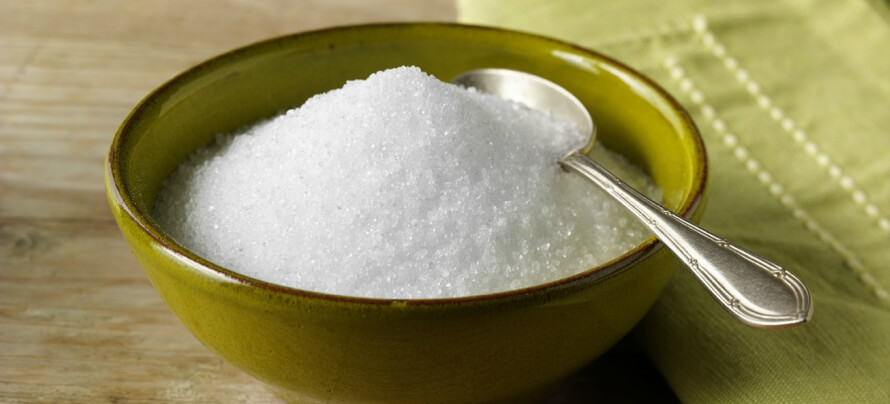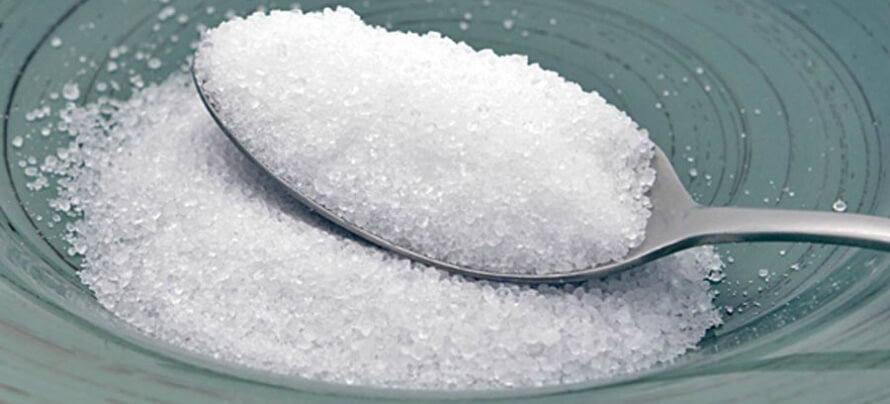Key Takeaways
- Sugar alcohols are molecules that taste like sugar but are poorly absorbed by the body.
- They make for a good sugar substitute and can provide some health benefits.
- If you eat too much of them, you can experience intestinal distress like gas, cramping, and diarrhea.
Just when you think you know all there is to know about carbohydrates, something new comes along that “is totally not a carb, guys.”
“Table sugar makes you fat because of insulin and blood sugar and stuff, but oh no, not sugar alcohols,” they say.
Instead, we’re told that sugar alcohols behave very differently in the body, making them “guilt-free” sweeteners that even diabetics can enjoy.
Is this true, or is it just more “guru” flimflam to sell more books, pills, and powders?
Furthermore, sugar alcohols are also kinda known to give people the shits, so there’s that, too.
Well, the short story is sugar alcohols aren’t wondrous molecules. They’re just another tool that you can use when planning your diet.
Due to their association with “healthy junk food” (non-GMO, gluten-free cookies and cakes and the like) and overly processed food in general, sugar alcohols have copped a bad reputation, but they don’t really deserve it.
By the end of this article, you’ll know what sugar alcohols are, whether you should include them in your diet, how to mitigate or lessen their side effects, and more.
Let’s get started.
- What Are Sugar Alcohols?
- What Are the Benefits of Sugar Alcohols?
- What Are the Downsides of Sugar Alcohols?
- Do Sugar Alcohols “Count” as Carbs?
- The Bottom Line on Sugar Alcohols
Table of Contents
+What Are Sugar Alcohols?
At bottom, sugar alcohols are exactly what they sound like: sugar molecules attached to alcohol molecules.
In this case, “alcohol” is unrelated to the type of alcohol that you drink, which is called ethanol. This is why sugar alcohols are called, well, sugar alcohols, and why they can be found in fruits and vegetables and some grains.
The reason they’ve swept the natural food industry by storm is the alcohol part modifies both the sweetness of the sugar and how it’s digested and absorbed by the body.
Specifically, sugar alcohols mostly bypass the small intestine and thus are only partially absorbed into the bloodstream, which is why they provide fewer calories per gram than sugar.
There are several types of sugar alcohols, and each has a different taste, calorie content, and effect in the mouth and intestines. The most common ones are as follows:
- Maltitol
- Erythritol
- Xylitol
- Sorbitol
- Mannitol
- Isomalt
And depending on which one we’re talking about, they can be added to foods to:
- Reduce net/overall carbs in a product meant for diabetics or those on a ketogenic diet.
- Reduce calories in a product without omitting carbs entirely.
- Mitigate the negative effects of sugars, mostly in regards to dental health.
What Are the Benefits of Sugar Alcohols?

According to some people, this is where sugar alcohols shine.
Not only are they sweet, we’re told, but they also do fantastical things for our bodies as well, including aiding in weight loss, improving blood glucose control and gut health, and more.
How true are these claims?
Can Sugar Alcohols Help You Lose Weight?
Dietary carbohydrates have four calories per gram, but calories only “count” if they’re fully absorbed into your body to be used as energy.
Sugar alcohols are only partially absorbed, which means your body can only absorb and use a portion of their calories.
For example, if your body could only absorb and use 25% of the calories in a sugar alcohol, then practically speaking, what would normally be 200 calories of regular sugar would now be a mere 50 calories.
This is why some weight loss products use sugar alcohols to reduce calories (and why we use them to sweeten our products)–if it helps you eat fewer calories in general, it can help you lose weight faster.
Of course vegetables and lean protein are “better” calories than products with sugar alcohols–and especially when you’re cutting–but sometimes you just need chocolate, and protein bars are better than candy bars.
You might be wondering why companies use sugar alcohols, which do have calories rather than compounds that don’t, like an artificial sweetener or stevia.
The reason for this lies in the physical properties of sugar alcohols; they can provide structure and stability to solid food products that other sweeteners can’t, making softer and chewier products.
Can Sugar Alcohols Help Control Blood Sugar Levels?
Yes.
Most studies on sugar alcohols are on diabetics, who use them as a way to eat sweet foods without having to increase their insulin dosage.
Many diabetics are going to eat sweet things regardless of what their doctors say, so can sugar alcohols help them enjoy sweetness without additional insulin?
Some can.
Erythritol in particular seems to have little influence on insulin release in lean and obese nondiabetics, and a 20 gram dose has no negative effects on glucose control in diabetics.
Can Sugar Alcohols Improve Gut Health?
Yup.
Sugar alcohols can be digested by bacteria in your intestines, resulting in fermentation and the production of short-chain fatty acids.
These fatty acids are particularly beneficial to gut health, mostly by aiding intestinal structure and preventing the immune system from overreacting.
Can Sugar Alcohols Improve Dental Health?
Yep.
Studies show a clear interaction between the sugar alcohol xylitol and dental health, which is why you’ll find it in many naturally sweetened chewing gums.
Research shows that erythritol may actually be a bit more potent than xylitol (and also sorbitol) in this regard, but they all have benefits and xylitol seems to be the most common one in chewing gum.
The reason sugar alcohols can affect your dental health is simple: they’re not sugar, which bacteria in the mouth love and feast upon, producing acidic compounds that erode teeth enamel and lead to cavities.
Thus, the less sugar you eat, the less damage to your teeth.
Keep in mind, though, that this doesn’t mean that sugar alcohols can cure dental problems–they can only help not cause them.
What Are the Downsides of Sugar Alcohols?

The main downside of sugar alcohols is they can upset your stomach and give you diarrhea.
Since sugar alcohols are tough to digest, they arrive in the colon mostly intact and are then gobbled up by bacteria, producing gas. They also pull water from the body into the colon, and when there’s too much water in the intestine relative to fiber or digested food, the stool becomes watery and loose (voila, diarrhea).
Erythritol is the exception here. Because it’s mostly absorbed in the small intestine, it doesn’t tend to cause the same digestive issues as other sugar alcohols.
This is also why other natural supplements like creatine and L-arginine can give people diarrhea when too much is taken at once, by the way (they love water).
The magnitude of these unwanted side effects depends on several things:
- How adapted you are to them (people who’ve never eaten them before are more susceptible to digestive problems).
- What types of sugar alcohols are eaten.
- How much are eaten.
- What they’re eaten with.
- Whether they’re liquid or solid.
In short, if you occasionally eat a large amount of sugar alcohols without much other “real” food, you’re more likely to get gassy diarrhea than if you eat small amounts with other foods on a consistent basis.
If you want to minimize your chances of experiencing cramps, gassiness, or diarrhea, then, you should eat sugar alcohols with fiber and at relatively low doses consistently from one day to the next.
Do Sugar Alcohols “Count” as Carbs?
That depends on what you mean by “count.”
When it comes to diabetics and people following a ketogenic diet, sugar alcohols would “count” if they had an effect on insulin and blood sugar levels, which, as you know, they don’t.
For those who are simply watching their calories, then sugar alcohols would “count” if they supplied calories, which they do–about 2 calories per gram, on average.
In other words, carbs from sugar alcohols do count as carbs but less than fully absorbed carbs in other foods.
The Bottom Line on Sugar Alcohols

Sugar alcohols aren’t a zero-calorie replacement for sugar and aren’t a “superfood” molecule, either.
They’re simply a safe way to replace some of the sugar in your diet with something that’s almost as sweet and much lower in calories, and that can provide some mild health benefits as well.
They also have a very “fun” method of forcing you to consume them in moderation: eat too much and your intestines will play jalapeno firehose for a day or two.










